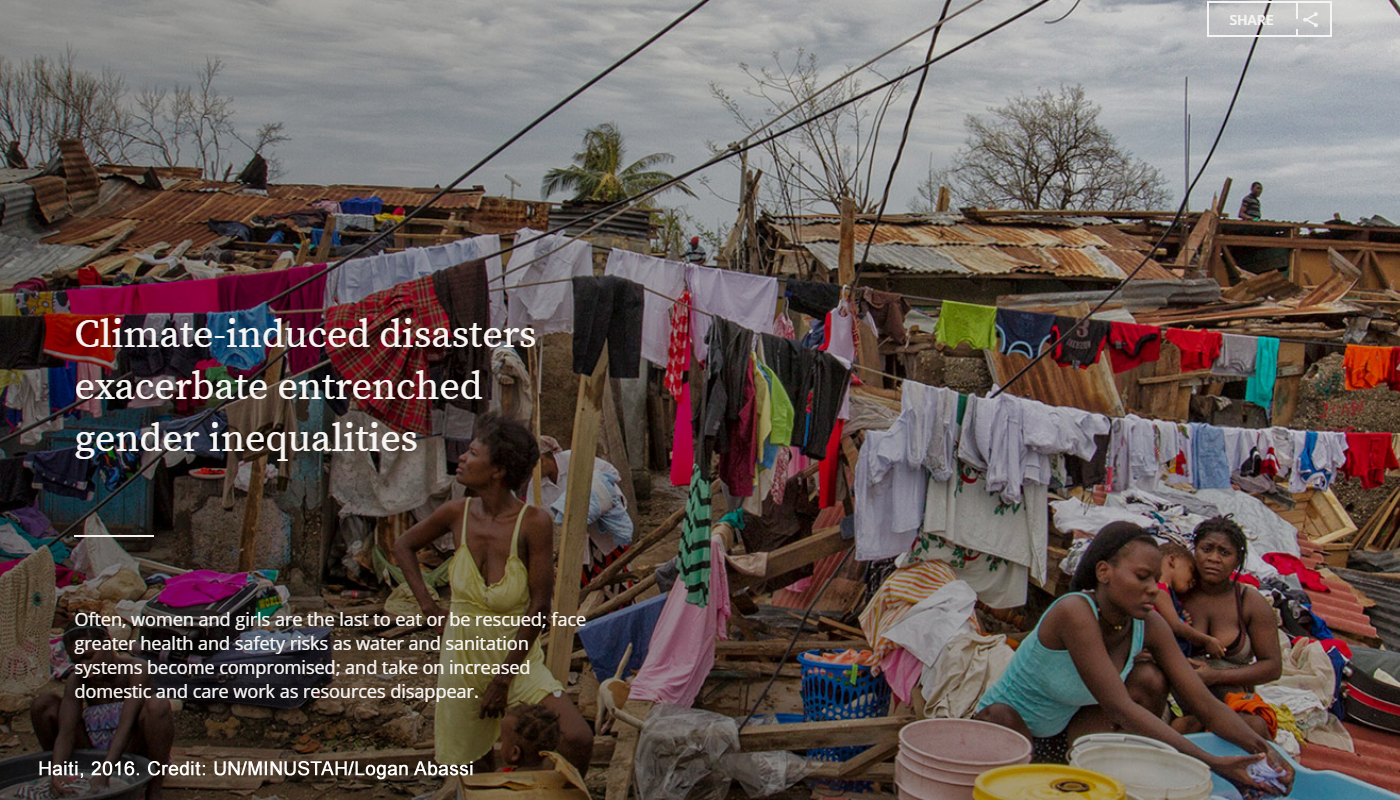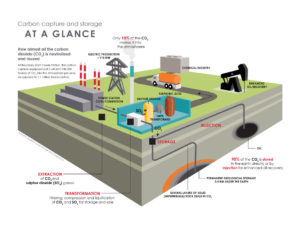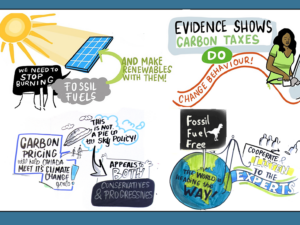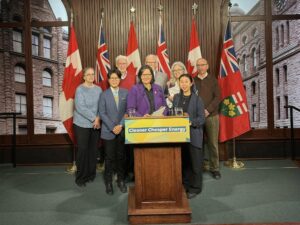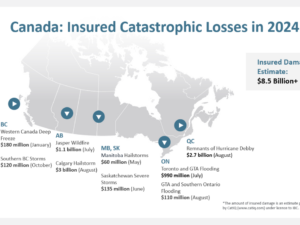The atmosphere, the air we breathe, and our global climate are part of the commons. The term “commons” derives from the traditional English legal term for common land which is not privately owned. Within the modern environmental movement, it was popularised by the ecologist Garrett Hardin in an influential 1968 article called The Tragedy of the Commons. The concept of the climate specifically having collective ownership goes back to a 2001 book Who Owns the Sky? by Peter Barnes. He proposed a market-based institution that would set limits on carbon emissions and pay dividends to all of us, who collectively own the atmosphere as a commons. Dividends would be paid annually, in much the same way Citizens’ Climate Lobby has been proposing since 2010 in the USA and Canada. An important Canadian paper by Dr. Lars Osberg states in its title “We all own the air“. He argued that the debate on carbon pricing could be reframed as being about deserved compensation and the rights of all citizens and thereby also makes the economic case in Canada for carbon fee-and-dividend. Women obviously belong to the commons. We are half of the humans of this planet. If so, should not half of those involved the global discussions on climate change be women? When I was at the 46th plenary of the Intergovernmental Panel on Climate Change (IPCC) in Montreal in September 2017 I attended a special session on women and gender equity at the IPCC. In a 2014 survey conducted by the IPCC, many of the polled authors stated that they saw the need for a better gender balance. For example, only 27% of contributors to Working Group II, concerned with climate impacts, adaptation and vulnerability were female. Concrete steps are being taken by all working groups in the IPCC to increase the number of female scientists contributing to the upcoming IPCC reports. While at United Nations Framework Convention on Climate Change 23rd Conference of the Parties (COP23) in Bonn I sat beside a UN observer at lunch. She specifically monitors women and climate change and she said Canada was a leader on the issue. Under the Paris Agreement (1/CP.21) Parties acknowledge that as climate change is a common concern of humankind: “Parties should when taking action to address climate change, respect, promote and consider their respective obligations on human rights, the right to health, the rights of indigenous peoples, local communities, migrants, children, persons with disabilities and people in vulnerable situations and the right to development, as well as gender equality, empowerment of women and intergenerational equity”. A haunting photo essay of how climate change is a women’s issue produced by the United Nations can be found here. At COP23, the Fiji Presidency announced the Gender Action Plan. Fiji’s Minister for Women, Children, and Poverty Alleviation, the Honourable Mereseini Vuniwaqa, highlighted the importance of the historic Gender Action Plan at the Women’s Leadership Dinner in Bonn, Germany. The Gender Action Plan will enhance support for the implementation of gender-responsive climate policy and action at the national and local levels. It will build on existing frameworks, such as the Women Delegates Fund, and create new processes for women to become agents of change in climate action. “Women around the world face some of the gravest risks from our changing climate; that is why women are some of the greatest actors for change and why we need our voices on the front lines of climate diplomacy,” said Minister Vuniwaqa. Obviously, all humans are responsible for acting on the climate; but it is also obvious that IPCC and COP23 leadership recognizes we need more female representation in the climate action movement. I applaud their efforts. In the 17th Century Poem Kabul by Saib-e-Tabrizi the following was spoken referring to women: In the 2017 book by Paul Hawken Drawdown: The Most Comprehensive Plan Ever Proposed to Reverse Global Warming educating and empowering women is sixth of the hundred most important things humanity can do to reverse global warming. By bringing women around the world fully into the global climate dialogues, we are about to unleash millions of splendid suns. This fuels me with great hope that we will finally as a global family of men, women, and children from all walks of life, overcome the climate crisis and that we are becoming too connected to fail.
Every street of Kabul is enthralling to the eye
Through the bazaars, caravans of Egypt pass
One could not count the moons that shimmer on her roofs
And the thousand splendid suns that hide behind her walls
BLOG: Sharing the Sky Will Unleash Millions of Splendid Suns
Home » CCL Canada News » BLOG: Sharing the Sky Will Unleash Millions of Splendid Suns


